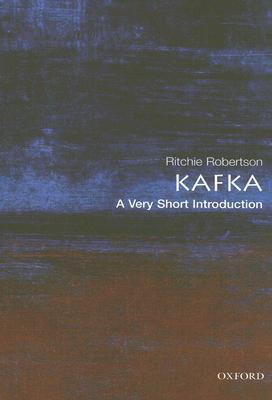
Kafka: A Very Short Introduction
아직 평점이 없습니다
Religion & Spirituality
Art & Photography
형식
페이퍼백
페이지
152
언어
영어
출판됨
Sep 1, 2005
출판사
Oxford University Press, USA
ISBN-10
0192804553
ISBN-13
9780192804556
설명
Franz Kafka stands out as one of the most compelling figures in modern literature, leaving an indelible mark on both readers and writers alike. His unique narrative style, characterized by an exploration of existential themes and surreal circumstance, transcends his time and resonates deeply with the human experience. Ritchie Robertson delves into the complexities of Kafka's world, shedding light on the struggles, anxieties, and profound insights that echo throughout his works.
In this concise exploration, Robertson examines the intricacies of Kafka's life, from his early influences to his tumultuous relationships and the societal context of his writing. Through a thoughtful analysis of key texts, he unveils the darker themes that permeate Kafka's stories, often reflecting the alienation and absurdity of modern existence. The reader is invited to engage with Kafka's innovative approach to storytelling, which challenges conventional narrative forms and provokes deep reflection.
With clarity and precision, this introduction not only highlights Kafka's literary contributions but also invites us to contemplate the broader implications of his work on contemporary literature and philosophy. By bridging the gap between Kafka's historical context and his enduring relevance, Robertson offers an illuminating perspective on an author who continues to inspire and bewilder audiences around the globe.
In this concise exploration, Robertson examines the intricacies of Kafka's life, from his early influences to his tumultuous relationships and the societal context of his writing. Through a thoughtful analysis of key texts, he unveils the darker themes that permeate Kafka's stories, often reflecting the alienation and absurdity of modern existence. The reader is invited to engage with Kafka's innovative approach to storytelling, which challenges conventional narrative forms and provokes deep reflection.
With clarity and precision, this introduction not only highlights Kafka's literary contributions but also invites us to contemplate the broader implications of his work on contemporary literature and philosophy. By bridging the gap between Kafka's historical context and his enduring relevance, Robertson offers an illuminating perspective on an author who continues to inspire and bewilder audiences around the globe.